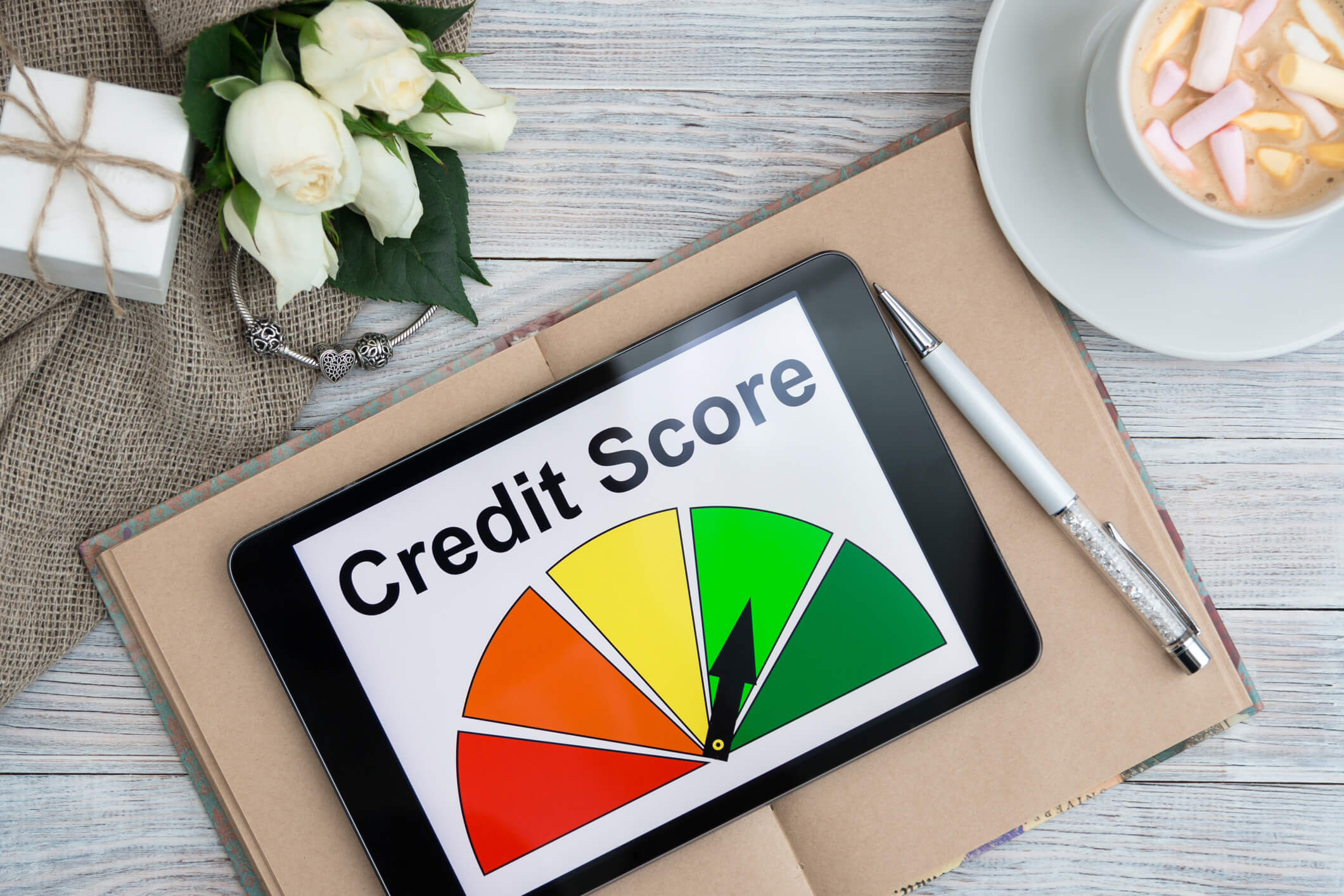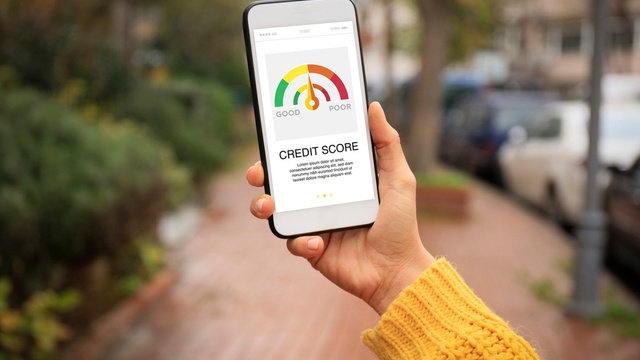Ever wondered if you have a ‘good’ credit score? We take a look at the scores the three main reference agencies consider to be good - and what you can do to improve yours.
Whether you are a first-time buyer looking to get a house, or you are applying for a credit card, or loan. Let us help to clear up some of the mystery surrounding this grey area about what constitutes a good credit score.
What is a good credit score in the UK?
All three main credit reference agencies have different scoring systems, but here’s an overview of what is considered a “good” score:
- With Experian a good credit score is between 881 and 960.
- With Equifax a good credit score is between 531 and 670
- TransUnion class a credit score of 4 to be a “healthy credit rating and signals that lenders may view you as low risk”
What if my credit score isn’t classed as 'good'?
It’s important to remember that even if you don’t fall into the “good” bracket, there’s still likely to be credit options available to you. It’s also possible to improve your score over time with responsible borrowing behaviours, like paying your bills on time, each month. Keep reading to find out how to improve your credit score.
Here’s how the three main credit reference agencies qualify their scoring system:
Experian
- Experian will rate your credit score on a scale from 0-999 based on the information they hold about your financial behaviour.
- ‘Excellent’ is 961-999
- Their website claims to consider a ‘good’ score to be anywhere between 881 and 960
- ‘Fair’ is classed as between 721 and 880. You may be approved for credit with OK interest rates but you might not be offered a high sum.
- ‘Poor’ is between 561 and 720. You may be approved for credit with higher interest rates.
- ‘Very poor’ is considered to be 0 to 560. If you have this rating you are more likely to be rejected for credit.
Equifax
- Equifax credit scores range between 0 and 1000
- ‘Excellent’ is 811-1000
- 'Very Good' is 671-810
- ‘Good’ is 531-670
- ‘Fair’ is between 439 and 530
- ‘Poor’ is 0-438
TransUnion
- TransUnion rate your score from 0-710. They also have a credit rating system from 1 to 5 based on your financial history. 5 is the best rating, which is a score of 628-710.
- This agency states a credit score of 604-627 (credit rating of 4) is a “healthy credit rating and signals that lenders may view you as low risk.”
- A credit score of 566-603 (credit rating 3) is classed as neither good nor bad. You may be charged higher interest rates if you are approved for credit.
- A credit score of 551–565 (credit rating 2) means you are more likely to be rejected by creditors and be charged higher interest rates.
- A credit score of 0–550 (credit rating 1) is the lowest rating so you could find it difficult to be accepted for credit. You may be subjected to higher interest rates than the other categories.
Whichever agency you use, the higher your score, the less risky you appear to lenders. And this makes it more likely you are to be accepted for credit. The very best deals with the lowest interest rates are often reserved for those with the highest scores (but this will also be dependent on lender’s criteria).

How do I check my credit file for free?
There are three main credit reference agencies in the UK: Experian, Equifax, and TransUnion. The good news is there are now more ways than ever to view your credit score for free, and checking your own file doesn’t make an impact.
- Consider accessing your credit file for free during a 30 day trial period with one of the main agencies. One of the perks of being a member is that you get real time updates on your credit file. However if you want to avoid charges, you need to cancel before the free trial ends.
- You could always request a free copy of your full statutory credit report online from these agencies. Be aware that they will charge you £2.00 if you request it in the post.
- Look into signing up for a free credit score check on with Experian. This is useful if you are not looking for full access to your report and just want to see your score. You can also use Money Saving Expert's Credit Monitor to check this score.
- Consider our member-only platform, CredAbility to get a free Equifax report, updated on a monthly basis.
- Check out Intuit Credit Karma for your free TransUnion report, on a weekly or monthly basis respectively.
How can I improve my credit score?
If you have a low credit score, don’t worry, there are ways you can improve it over time. Here are eleven ways to make yourself more appealing to lenders:
- Maintain your regular payments on time, every time, on household and personal bills by setting up direct debits or standing orders.
- Only borrow what you can afford to repay. Defaults can be applied if you miss 3-6 contractual payments. Defaults and CCJs remain on your file for 6 years, which can negatively impact your score.
- Reduce any debts you have. There are debt management companies like StepChange who can offer free advice if you are in financial difficulty.
- Spread out your finances so you don’t max out all of your accounts. If you are able to manage multiple accounts, it could show lenders that you are reliable when it comes to paying them back.
- On the other hand, some creditors prefer it if you cancel any unused credit cards as it could appear risky if you have the potential to rack up high bills.
- Be wary of high interest rates and charges applied by some payday lenders. Only take out a loan if you can afford to repay it on time and in full.
- And try not to apply for multiple amounts of credit in a short timeframe, or it could look like you are struggling financially.
- Register to vote so that lenders can verify that you are who you say you are. They can rule out any fraudulent activity on your side, which can help your score.
- Update any mistakes on your credit file by contacting your lenders or credit reference agencies. This includes small things like making sure your address is up to date.
- Use eligibility checkers before applying for credit, so you only need to apply if you are likely to get accepted. These will do a ‘soft search’ on your file, so it won't affect your score.
- Disassociate your credit file from anyone who you are no longer in a relationship with, or who you no longer share finances with. If they have a poor credit history, it could reflect poorly on you.
Remember, improving your credit score can take time and patience. There’s no guarantee that you will be provided with credit in the future, as it depends on your affordability and the criteria used by lenders.
Wondering how your score stacks up to the rest of the UK? Why not check out how does your credit score compare to the UK average.
Adele is a personal finance writer with more than 10 years in the finance industry behind her. She writes clear and engaging guides on all things loans for Ocean, as well as contributing blogs to help people understand their options when it comes to money.
![Email icon]()
Become a money maestro!
Sign up for tips on how to improve your credit score, offers and deals to help you save money, exclusive competitions and exciting products!
Find this useful? Share it with others!










